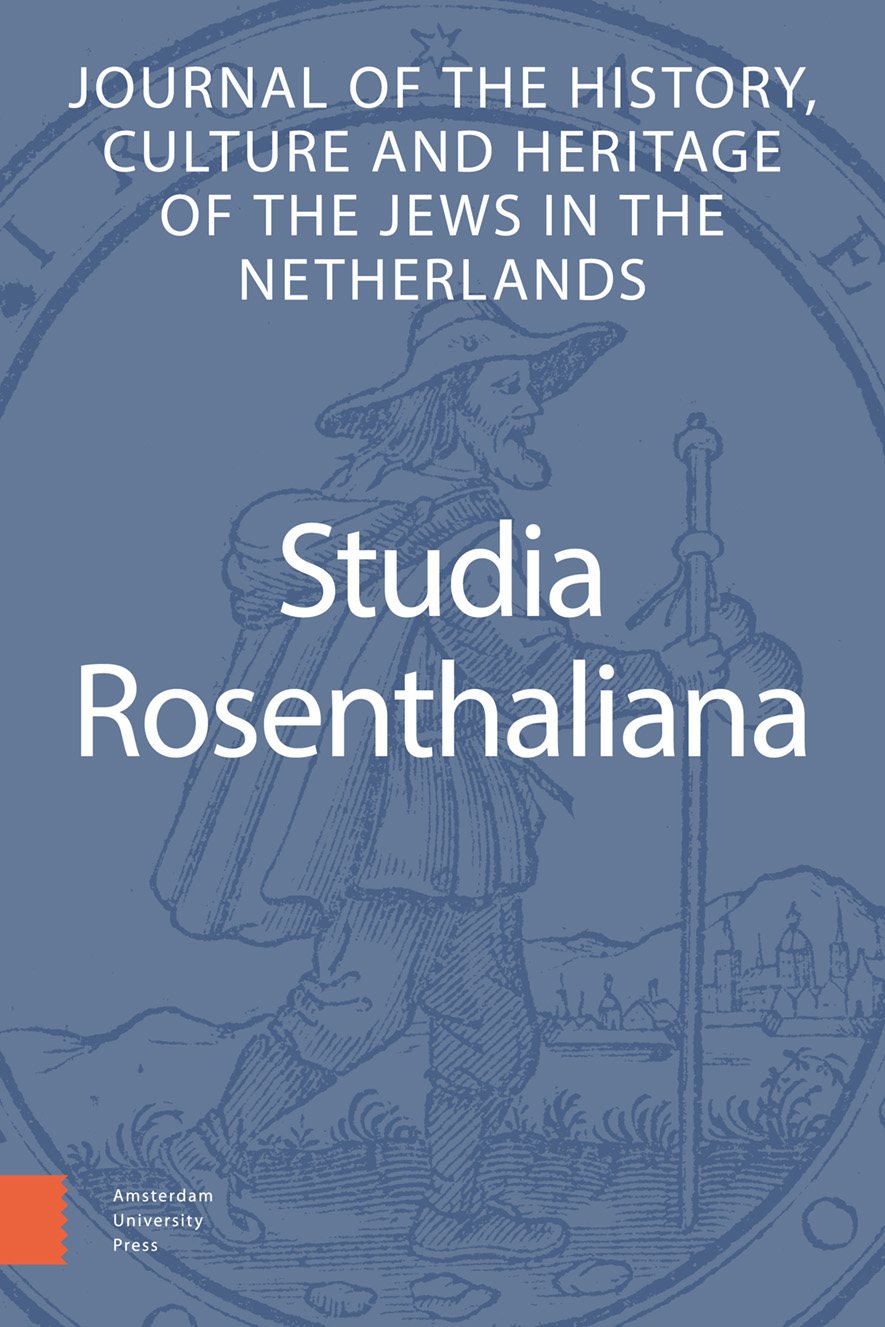- Home
- A-Z Publicaties
- Studia Rosenthaliana
- Previous Issues
- Volume 49, Issue 1, 2023
Studia Rosenthaliana - Volume 49, Issue 1, 2023
Volume 49, Issue 1, 2023
The Imperial Turn in Dutch Jewish History: Cases, Questions, and Considerations
Guest Editor Jessica Roitman
Guest Editor Jessica Roitman
Taal:
Engels
- Articles
-
-
-
Introduction to the Special Issue: Engaging Empire: Histories and Historiography of Jews in the Dutch Colonies, 1700-1945
Meer MinderDoor Jessica RoitmanAbstract Jews were present in Dutch colonial spaces from the beginnings of Dutch expansion. This presence raises questions about the intersection of Jews and Dutch colonialism. What did Jews mean for Dutch colonialism? And what did colonialism mean for Dutch Jews? This article explores the historiography of Jews and colonialism and considers what an ‘imperial turn’ in Jewish Studies could mean for th Read More
-
-
-
-
Early Modern Portuguese Jewish Conceptions of Dominium and Libertas and Constructions of Community
Meer MinderAbstract The Atlantic trade in enslaved people became an economic, social, political, and legal issue in the seventeenth century. Portuguese Jews became involved in the trade in enslaved people and the debate about its legality in this same chronology. Portuguese Jews, some of whom had lived as so-called New Christians or conversos, blended legal traditions ranging from the Spanish ‘School of Salamanca’ which was a leg Read More
-
-
-
An ‘Archaeology of Knowledge’ around Notísias dos Judeos de Cochim by Mosseh Pereira de Paiva: A Land of Ghosts
Meer MinderAbstract The Dutch East India Company (VOC) relied on the Portuguese Jewish community of Amsterdam to ensure that the White or Paradesi Jews in Cochin were suitable to be their social and economic partners. The Portuguese Jews were interested in this partnership as well. Yet there was another group of Jews in Cochin. These were the Black or Malabari Jews. The relationships between the trading company and three disti Read More
-
-
-
Jewish Diplomacy during the Revolt in Dutch Brazil, 1645-1654
Meer MinderDoor Hans WallageAbstract Historians have rarely studied early modern Jewish diplomacy, of which Jewish petitioning was a part. They hypothesize that early modern antisemitism and their minority status as a group without its own state prevented early modern Jewish communities from having any form of political power. However, according to historian David Biale, a typical example of ‘Jewish power’ is Jewish influence on political policy. Thi Read More
-
-
-
Enslaved Domestic Work in an Atlantic Sephardic Household
Meer MinderAbstract Sephardic Jews were involved in the burgeoning Atlantic trade of the seventeenth century, which linked Europe, Africa, and the Americas. As a highly mobile community, they may have lived in various places throughout their lives. As the Sephardic community settled in Amsterdam in the early-to-mid seventeenth century, they had to contend with issues that these travels brought to the fore, one of which was the boun Read More
-
-
-
Dutch Jews in the Imperial Space: The Social Mobility and Integration of Jewish ‘Indies travellers’, 1870-1940
Meer MinderDoor Sietske van der VeenAbstract From the last decades of the nineteenth century, Dutch Jews increasingly moved to the Dutch East Indies, which at this time were opened up to individual citizens to pursue a career. Members of the Dutch political, financial, and cultural elites were overrepresented among the (Jewish and non-Jewish) ‘Indiëgangers’, or ‘Indies travellers’. Colonial society provided Jews with novel opportunities, as their Jewish background Read More
-
-
-
‘The withuiden were worth their contempt, the Iraqis not’. Jewish experiences in the Dutch East Indies during the Second World War and Japanese occupation, 1939-1945.
Meer MinderAbstract European Jews and their experiences during the Second World War in Europe are a well-covered subject. However, their experiences in Asian colonies during the same period have been examined far less, especially their experiences in the Dutch East Indies. In this article, I examine the experiences of European Jews (including European refugees) just before and during the Japanese occupation in the Dutch East Indie Read More
-
Most Read This Month
Article
content/journals/17817838
Journal
10
5
false
nl


